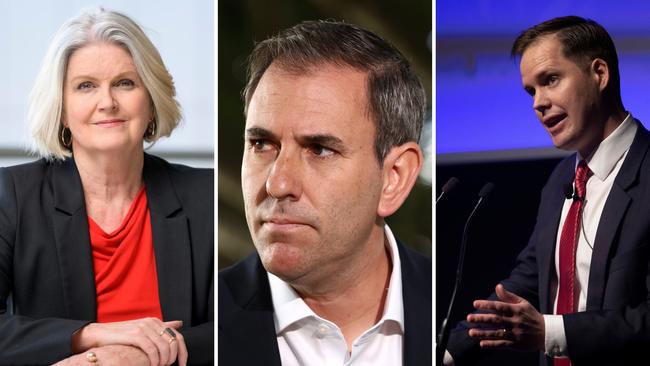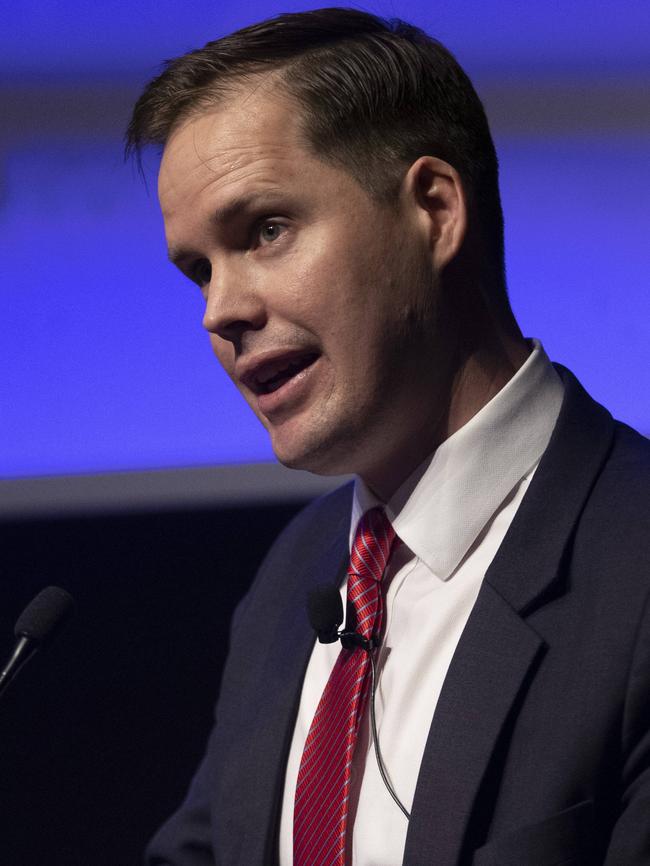Energy bill rebates must end, Anthony Albanese’s welfare experts declare
Members of Anthony Albanese’s welfare working group are pushing Labor to end its $6.8bn power bill rebates and funnel taxpayer money into solar panels and renewable batteries for poorer Australians.

Members of Anthony Albanese’s welfare working group are pushing Labor to end its $6.8bn power bill rebates and instead funnel taxpayer money into solar panels and renewable batteries for poorer Australians, reducing power prices more sustainably and reining in the deficit.
Economists, including those on the Prime Minister’s Economic Inclusion Advisory Committee – which itself has called for radical welfare spending in the past – want the rebates scrapped.
However, Jim Chalmers has refused to rule out extending them beyond the end of the year, saying: “From budget to budget, we see if we can do more.”
The one-year, $300 rebate announced in last year’s budget was set to expire on June 30 but will be extended to the end of this year, adding $150 in support for every home in the country.
The Treasurer, who was not able to keep a pre-election promise of cutting power bills by $275, said the highest priority of the Labor government in the first term was to get on top of inflation and that “electricity bill rebates are an important part of that”.
While the rebates have reduced headline inflation, the unwinding of state government rebates led to a spike of 16.3 per cent in electricity prices in the first quarter of this year, adding 0.30 percentage points to inflation. While the Reserve Bank does look through volatile prices, it will still be mindful of rising energy costs when it delivers its interest rate decision on Tuesday, when it is likely to cut the official cash rate by 0.25 percentage points to 3.85 per cent.

Australian National University associate professor and member of the inclusion committee Ben Phillips said the government had to “bite the bullet at some point and unwind these things”.
“I don’t think they should have been there in the first place, as broadly based as they were,” he said. “The full-blown energy rebates going to all households I think was a bit too strong anyway … given that we’re still concerned about physical ramifications and balancing budgets and all those sorts of things.”
The inclusion committee, which was established in 2023 to secure the support of independent senator David Pocock for Labor’s IR reforms, proposed a raft of reforms that would cost an estimated $34bn in its first report. The latest report, released shortly before the March budget, made 10 recommendations, including increasing welfare payments, reforming employment services and implementing free preschool for three- and four-year-olds.
Australian Council of Social Service chief executive and inclusion committee member Cassandra Goldie said the rebates had to be dropped and the money used to improve energy efficiency for struggling households.
“One-off energy bill rebates provide short-term relief but they are not a long-term solution to reduce energy costs and the cost-of-living crisis,” Dr Goldie said.
“Instead of relying on untargeted payments, we need to invest in lasting solutions like home energy upgrades, prioritising those living in social housing, private rentals, and low-income homeowners who are currently missing out.


“This includes insulation, electrification and solar. These upgrades will permanently reduce energy bills, improve health, and protect people from extreme heat and cold.
“People on low incomes should be at the centre of the clean-energy transition, with equitable, permanent solutions that bring bills down for good.”
Brotherhood of St Laurence executive director Travers McLeod, also an inclusion committee member, said he thought the energy rebates should be axed and the priority should be “targeted rather than universal relief”.
“In terms of energy relief, the Brotherhood of St Laurence wouldn’t support an extension to the rebates in their current form,” Dr McLeod said.
“We would support cost-of-living relief that’s better targeted for those in low-income households and helps to grow economic inclusion. In terms of energy relief, there are ways that can be done in a more targeted fashion, and help with decarbonisation at the same time.
“We would welcome more support for those on the lowest incomes for home energy upgrades such as rooftop solar, batteries, efficient heating and cooling. These would help to lower energy bills for those most in need and create more climate-resilient homes. We would be in favour of targeted rather than universal relief.”
Adept Economics and former Treasury analyst Gene Tunny backed the inclusion committee members’ assessment, saying the rebates had to go and the problem with them was that it incentivised people to use even more power and made the system less efficient and sustainable.
As well as the federal rebate, the Queensland-based economist saw $1000 a year in state government rebates which he was against and have only just ended.
“The perverse thing about these policies is that you are depriving the market of important information about demand. People might become less conscience of using power if you say it’s free,” Mr Tunny said.
“Policies that see people invest in solar power would be better because they have a better rationale. They improve the environment as well as lower costs.”
Even excluding rebates, electricity prices would have risen by 0.4 per cent in the March quarter over the previous corresponding period. This points to a growing concern about the costs of electricity in the future.
Mr Tunny said the costs of building new energy infrastructure meant there was almost certain to be high energy inflation in Australia. Higher energy costs filter into the cost of other products and pose a problem that the Reserve Bank could not ignore.
Westpac has estimated that households across the country would have faced a record-breaking 47 per cent increase in out-of-pocket electricity costs this year.
The RBA has forecast underlying inflation, which excludes volatile prices such as energy, to be at 2.7 per cent by June 30 and remain there until 2027.
“The rebates are probably inflationary too – no one is saying that spending more money is going to reduce inflation,” Mr Tunny said.
“Don’t forget that these government rebates are paid with borrowed money so there is a higher interest bill.”
Mr Phillips said it wasn’t “necessary” to keep providing energy relief that wasn’t means tested, but instead it would be more effective to increase social support payments, especially for working-age welfare recipients.
“Household incomes are increasing, there was the big stage three tax cuts which went to many households,” he said.
“So I don’t think it was necessary, it was probably more just about trying to get votes.”



To join the conversation, please log in. Don't have an account? Register
Join the conversation, you are commenting as Logout